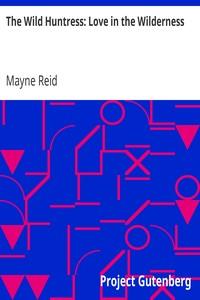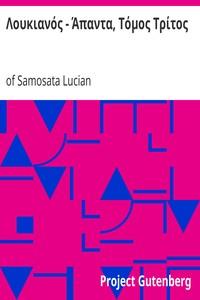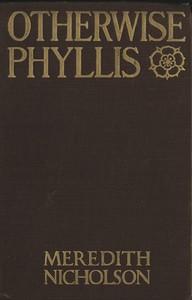Read this ebook for free! No credit card needed, absolutely nothing to pay.
Words: 101324 in 27 pages
This is an ebook sharing website. You can read the uploaded ebooks for free here. No credit cards needed, nothing to pay. If you want to own a digital copy of the ebook, or want to read offline with your favorite ebook-reader, then you can choose to buy and download the ebook.


: The Wild Huntress: Love in the Wilderness by Reid Mayne - Ute Indians Fiction; Mormon pioneers Fiction
The purposes of my travelling companion differed slightly from mine, and were, perhaps, a little more definite. His leading idea was a settlement of old scores with Stebbins, for wrongs done to him--which he now more particularly detailed to me. They were sufficiently provocative of revenge; and, from the manner of my comrade, and the vows he occasionally uttered, I could perceive that he would be as eager in the pursuit as myself. In all probability, an encounter with the migrating party would bring about an important change in their programme: since the young hunter was determined, as he expressed himself, "to force the durned skunk into a fight."
Inspired by such motives, we pressed on to the end of our journey; and reached the mouth of the Obion, after a long and wearisome ride. It was midnight when we arrived upon the shore of the Mississippi--at its point of confluence with the Tennessean stream. The land upon which we stood was scarcely elevated above the surface of the water; and covered, every foot of it, with a forest of the cotton-wood poplar, and other water-loving trees. These extending along the marshy borders of both streams, hindered us from having a view of their channels. To obtain this, it was necessary to climb one of the trees; and my comrade being disabled, the task devolved upon me. Dismounting, I chose one that appeared easiest of ascent; and, clambering up it as high as I could get, I fixed myself in a fork, and commenced duty as a vidette.
My position could not have been better chosen. It afforded me a full view, not only of the Obion's mouth, but also of the broad channel into which it emptied--at their confluence, forming an expanse of water that, but for its rolling current; might have been likened to a vast lake. There was moonlight over the whole surface; and the erratic ripples were reflected in sparkling coruscations--scarcely to be distinguished from the gleaming of the "lightning bugs," that hovered in myriads along the hedges of the marsh. Both banks of the lesser stream were draped to the water's edge with an unbroken forest of cotton-woods--the tops of which exhibiting their characteristic softness of outline, were unstirred by the slightest breeze. Between rolled the brown waters of the Obion, in ruder, grander flow, and with channel extended by the freshet. Every inch of it, from side to side, was under my observation--so completely, that I could distinguish the smallest object that might have appeared upon its surface. Not even the tiniest waif could have escaped me--much less a canoe freighted with human beings; and containing that fairer form, that would be certain to secure the keenest and most eager glances of my eye.
I congratulated myself on reaching this perch. I perceived that a better post of observation could not have been chosen. It was complete for the purpose; and, if I could only have felt sure that we had arrived in time, all would have been satisfactory. Time alone would determine the point; and, turning my eyes up stream, I entered upon my earnest vigil.
THE WHITE FOG.
Vain vigil it proved. I shall not tire the reader with details. Suffice it to say, that we kept watch till morning's dawn; and then, profiting by the daylight, sought out a more convenient post of observation, where we continued our surveillance--watching and sleeping in turn. Throughout the following day, and into the second, was our vigil extended: until no longer able to hope against hope, we agreed finally to abandon it. But for one circumstance, we might have felt surprise at the result. We were both convinced that we had reached the river's mouth in good time: since, by our calculations, the canoe could not possibly have "headed" us. But for the same circumstance, we might have believed, that they had not yet come down the Obion; and perhaps would have remained at our post a day longer.
From that time, my comrade and I were uncertain; and this, uncertainty will explain the absence of our surprise at not seeing the canoe, and why we waited no longer for its coming. The most probable conjectures were that it had passed us in the fog; that the apparition was real; and they that occupied the canoe were now far-away on the Mississippi--no longer trusting to such a frail craft, but passengers on one of the numerous steam-boats, that by night as by day, and in opposite directions, we had seen passing the mouth of the Obion.
THE PROMISED EPISTLE.
Under any circumstances, a return to Swampville would have been necessary: certain pecuniary requirements called me back to that interesting village. A journey, even across the desert, cannot be made without money; and the hundred dollars I had paid to Holt, with hotel and other incidental outlays, had left me with a very light purse. It would have taken three times as much as I was master of, to provide us with the scantiest equipment required for a prairie journey; and toward this the young hunter, willing to give his all, was able to contribute nothing. He would cheerfully have parted with his patrimony--as I with my purchase--for a very slender consideration; but, at that crisis, the Californian speculation demanded all the specie in circulation; and neither his clearing nor mine would have sold for a single dollar, had the payment been required in cash. A credit sale could not have served us in any way; and we were forced to hold on to our depreciated property--upon which not a single cent could be borrowed.
Never stood I in more need of my Nashville friend; and my appeal, already made, was promptly responded to--as I expected it would be. On the third day after my despatch, the answer arrived--with a handsome enclosure; enough to carry us across the continent, and back again if need be. We were now ready for the road. We waited only for that other letter, that was to be the index to our destination.
"Stranger!--I hope you got my other letter, and that you were able to read it, for I had no paper, nor pens, nor ink to write it better--only a little bit of a pencil, that was my mother's, and a leaf which father said you tore out of a book. But I think I could have wrote it better, only I was so afraid that they would see me, and scold me for it, and I wrote it in a great hurry, when they were from home, and then left it on the table after both of them had gone down to the creek to get into the canoe. I thought no one would come to the house before you, and I hoped all the morning you might come before we were gone. I would have given a great deal to have been able to see you again; and I think father would have waited till you came, only his friend would not let him stay longer, but hurried us away. But I hope you got the letter, and that you will not be offended at me for writing this one I send you, without your leave. I promised that if you would allow me, I would write from some place, and tell you the name of the country where we are going; but I forgot that it would be impossible for you to give me leave, as you could not see me, nor yet know where to write it to me. I now know what country it is, for everybody we have seen is talking about it, and saying that it is full of gold, that lies on the ground in pieces as big as hickory nuts; and I hear the name a many a time, over and over again. Father calls it `Californey,' and some `California,' and this, I suppose, is the right way of spelling it. It is near a great sea, or ocean as they call it, which is not the same that comes in at Philadelphia and New York, but far greater and bigger than the Mississippi and the Obion, and all the rivers put together. It must be a very large sea to be bigger than the Mississippi! But I am sure you must know all about it, for I have heard them say you have travelled in these far-away countries, and that you were an officer in the army, and had been fighting there with the Mexicans. I am glad you were not killed, and got safe home again to Tennessee; for if you had been killed, I should never have seen you; but now it is just as bad, if I am never to see you again. O sir! I would write to you from that country when we are settled there; but I fear you will forget me before then, and will not care to hear anything more about us.
"I shall never forget our dear Tennessee. I am very sorry at leaving it, and I am sure I can never be happy in California with all its gold-- for what good can gold be to me? I should so like to hear sometimes from our old home, but father had no friends who could write to us; the only one we knew is gone away like ourselves.
Free books android app tbrJar TBR JAR Read Free books online gutenberg
More posts by @FreeBooks

: Λουκιανός - Άπαντα Τόμος Τρίτος by Lucian Of Samosata Kondylakes Ioannes Translator - Lucian of Samosata Translations into Modern Greek Precursors of Science Fiction








